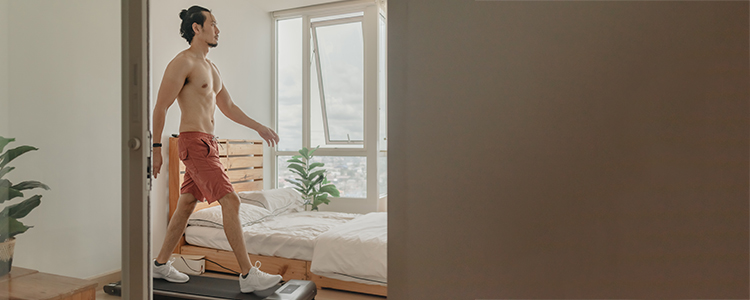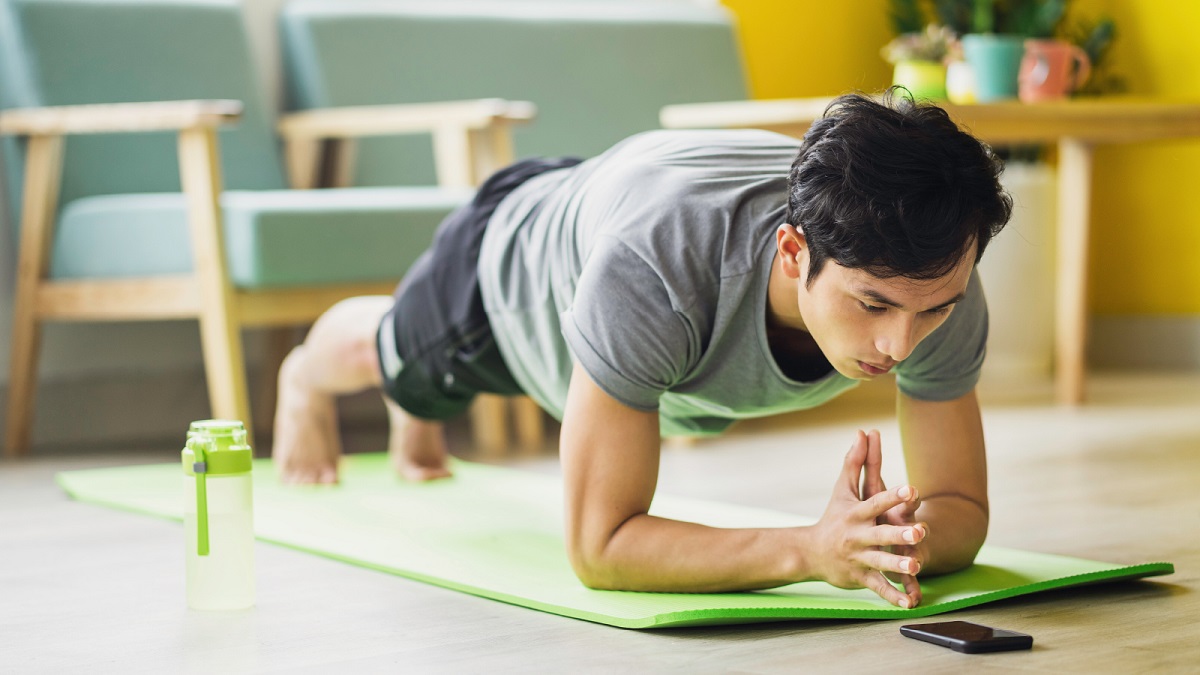- For SME and Groups
- For Individuals
Group Health Insurance
About Cigna Healthcare
Can exercise help with chronic musculoskeletal pain?
Can exercise help with chronic musculoskeletal pain?
Even before the COVID-19 pandemic, musculoskeletal (MSK) pain had already been a considerably widespread concern amongst the global and local population. MSK conditions tend to be characterised by discomfort, impairment or persistent pain in the joints, bones, and muscles, including areas like our neck, shoulders, and back. Today, they account for the greatest proportion of non-cancer, persistent pain conditions globally, with approximately 73% of Singapore’s working adults experiencing pain in at least one body part1.
If you have found yourself dealing with chronic pains and aches recently, it may comfort you to know that you are not alone. The majority of us have gotten used to working from home since the transition to more socially distanced working arrangements. Though this has helped to reduce commute times and the risk of transmission, it has also led to a greater surge of injuries and discomfort as we continue working from our sofas, beds, and uncomfortable kitchen counters. The question here is this: how can we adapt to, manage, and prevent further MSK pains - and how exactly does exercise fit in amongst all of this? Let us find out.

Debunking the myth
The simple truth is that the change in our working habits is not just limited to our choice of workplace; we have also changed the way we work. With working remotely, many of us have become less active throughout the workday as we no longer have to walk around to attend meetings, pop out for a quick break or even walk to the train station for our commutes. Instead, we simply sit at our desks for most of the day, exposing us to a greater risk of MSK pain.
Thankfully, there is one simple solution that we can adopt: exercise. Working out might seem like the last thing someone in pain should do, but it can be surprisingly beneficial in reducing our exposure to MSK pain. Research, for instance, has shown that being inactive tends to reinforce pain sensitivity pathways2, which means we are more likely to experience greater pain when we remain sedentary. On the other hand, exercise can reduce feelings of pain almost immediately while raising people’s pain thresholds3. The benefits that come with exercise can even eclipse those of other treatment options, such as massage and stress management.

Finding your routine
While exercise can seem like a simple solution that may help us deal with chronic pain, the main obstacle lies in finding a unique workout routine that will help with our particular concern(s). Often, this requires a lot of trial and error. The best way to go about this process is to find out the root cause and other contributing factors with the help of experts. For instance, it is not uncommon for those with lower back pain to find that the main problem lies with weak and inflexible leg muscles rather than the lower back area. Our leg muscles tend to be the ones holding most of our weight and cushioning the impact when we move about. When they are weakened due to extended sitting durations, the lower back has to shoulder more load and can therefore develop chronic pain. In this sense, figuring out some exercises that are useful for strengthening the thigh muscles can indirectly help to reduce MSK pain - as opposed to simply working on the problematic lower back area or not exercising at all. Here are some other forms of exercise that you can also try out to strengthen various muscles in your body:
- Flexibility-promoting exercises like yoga, Tai chi, and Pilates
- Strength-training exercises like resistance circuits and weight training
- Aerobic exercises like brisk walking, swimming, and cycling
Understandably, this entire process can be a bit daunting to undertake alone. It is always helpful to remember that you can reach out to experts for assistance, such as by asking specialists the right questions or even looking for the right trainer or physical therapist to address your needs. As you start forming your exercise routine, make sure to also discuss your preferences and plans with your health professional since they may have more insights on finding a solution that will work for you. Finally, remember to start small and not limit yourself to traditional forms of exercise. The main objective here is simply for you to increase the amount of time spent moving rather than sitting for better MSK self-care.

Utilising a Whole Person Health approach
Beyond physical solutions, it is important to know that pain is fundamentally multi-dimensional. This means that factors such as our lifestyle habits and mental state can also influence how we experience pain. As such, simply focusing on one form of MSK care - like exercise - may not be as effective as employing a Whole Person Health approach that will allow us to address the issue from all angles.
To put this into perspective, studies have found that emotional pain has the same neural pathways as physical pain. Many people are therefore likely to experience similar cycles of depression and bodily pain, with around 66% of depressed individuals reporting that they live with MSK issues4. In a similar vein, our lifestyle habits also play an important part in our MSK health. Factors such as excess weight, for instance, can overburden our joints, whereas consuming too much sugar can increase inflammation and our perception of pain. By putting together a varied combination of solutions targeting our physical, mental, financial, social, and workplace health, we can reduce our reliance on interventive clinical care - and instead be able to start paving the way for a more proactive and sustainable MSK care journey. So whether you are looking to or have already started to incorporate positive lifestyle changes, such as breathing techniques, you are already well on your way to achieving better health outcomes.
ur consultants prepare a customised health and medical insurance plan that best meets your needs.
Over to you
MSK conditions do not set in overnight. More often than not, they tend to be the result of prolonged lifestyle habits that go unnoticed in our day-to-day lives, such as having bad posture and extended periods of inactivity. Deciding to be more active is therefore already half the battle won - as it serves as a form of preventive self-care just as much as a curative strategy to alleviate MSK concerns. More importantly, it pays to be attentive in our everyday lives so that we can discover new perspectives and avenues for improvement in our pursuit of Whole Person Health.
Get a Quote Today
Let our consultants prepare and arrange a customised group health insurance plan that best meets your needs.
Sources:
1. NDCS. Musculoskeletal Disorders and Office Ergonomics.
2. Senba, E., & Kami, K. (2017). A new aspect of chronic pain as a lifestyle-related disease.
3. Belavy, D., Van Oosterwijck, J., Clarkson, M., Dhondt, E., Mundell, N., Miller, C., & Owen, P. (2021). Pain sensitivity is reduced by exercise training: Evidence from a systematic review and meta-analysis.
4. Sheng, J., Liu, S., Wang, Y., Cui, R., & Zhang, X. (2017). The Link between Depression and Chronic Pain: Neural Mechanisms in the Brain.
Related articles
Contact Us
Popular Links
Resources
Connect with us
© Cigna Healthcare. All rights reserved.
Cigna Europe Insurance Company S.A.-N.V. Singapore Branch (Registration Number: T10FC0145E), is a foreign branch of Cigna Europe Insurance Company S.A.-N.V., registered in Belgium with limited liability, with its registered office at 152 Beach Road, #33-05/06 The Gateway East, Singapore 189721.
The Cigna Healthcare name, logo, and other Cigna Healthcare marks are owned by The Cigna Group Intellectual Property, Inc. licensed for use by Cigna Corporation and its operating subsidiaries. All products and services are provided by or through such operating subsidiaries, and not by Cigna Corporation. Such operating subsidiaries include Cigna Europe Insurance Company S.A.-N.V. Singapore Branch.

